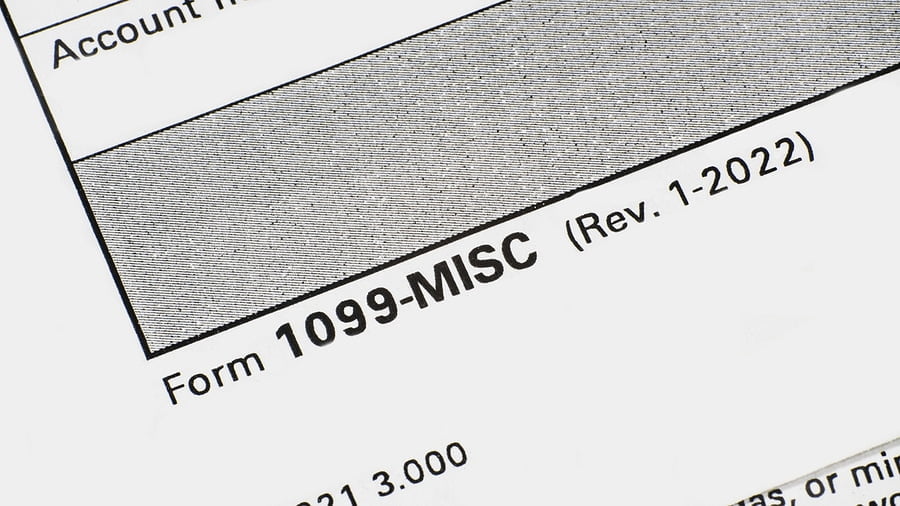As tax season approaches, many individuals and businesses gather their tax documents to file their tax returns. One of the necessary forms that individuals who earn income from non-employment sources need to file is the 1099 form. The 1099 form reports the amount of money an individual or business received from a company or entity during the tax year. This form reports various types of income, such as freelance work, rental income, and investment income.
However, sometimes, individuals may not receive their 1099 forms before the tax deadline. This can be due to various reasons, such as the company or entity not filing the form or the form getting lost in the mail. In such cases, it is crucial to take action promptly and ensure that you file your tax return on time.
Here are some steps to take if you have not received a 1099 form and need to file your taxes:
- Contact the company or entity: The first step is to contact the company or entity that should have sent you the 1099 form. Ask if they have sent the form and if there was any issue with the mailing or delivery. If the company confirms that they have dispatched the form, ask for a copy or a reissued form. If they have not sent the form, ask them to send it as soon as possible.
- Use your records: If you cannot obtain a 1099 form from the company or entity, you can still report your income by using your records. Gather all your invoices, receipts, and bank statements that show the income you received from the company or entity. You can use this information to estimate the amount of income you earned and report it on your tax return.
- File for an extension: If you are unable to obtain a 1099 form or estimate your income, you can file for an extension. Filing for an extension will give you additional time to obtain the form or estimate your income accurately. However, it is essential to note that filing for an extension does not extend the time to pay your taxes. You will still need to pay any taxes owed by the tax deadline to avoid penalties and interest.
- Report the income: Regardless of whether you have the 1099 form or not, you are still required to report the income you earned from the company or entity on your tax return. Use Form 1040 or Form 1040-SR and report the income on Schedule C if you are self-employed or on Schedule E if you have rental or investment income. Make sure to include all the relevant details, such as the name and address of the company or entity, the type of income, and the amount earned.
In conclusion, not receiving a 1099 form can be stressful, but it can be a manageable issue. You can take steps to obtain the form or estimate your income accurately and file your tax return on time. If you need more clarification on any of these steps or need further guidance, it is always a good idea to consult with a tax professional or an accountant.
The different types of 1099 tax forms you may receive
The term “1099” typically refers to a series of tax forms used in the United States to report various types of income received by individuals, businesses, or other entities. For example, the letters or words that follow “1099” refer to the specific type of form used.
For example:
- 1099-MISC: This form reports miscellaneous income, such as payments for services rendered by independent contractors or freelancers.
- 1099-INT: This form reports interest income earned on investments, such as savings accounts, CDs, or bonds.
- 1099-DIV: This form reports dividends earned on stocks or mutual funds investments.
- 1099-R: This form reports distributions from retirement plans, such as 401(k)s or IRAs.
- 1099-C: This form is used to report cancellation of debt income, such as when a lender forgives or writes off a debt.
- 1099-G: This form reports income from government sources, such as unemployment benefits, state tax refunds, or Social Security benefits. It may also be used to report other types of income from a governmental entity, such as gambling winnings.
- 1099-S: This form is used to report income from the sale of real estate or personal property. It may also be used to report income from the exchange of an interest in a partnership or other entity.
- Form 1099-NEC is a tax form used by businesses to report non-employee compensation paid to independent contractors, freelancers, and other self-employed individuals. The term “NEC” stands for “non-employee compensation.”
Note: Prior to tax year 2020, businesses used Form 1099-MISC to report non-employee compensation, along with several other types of payments.However, starting with tax year 2020, the IRS created Form 1099-NEC to specifically report non-employee compensation, while other types of payments are now reported on Form 1099-MISC.
Other letters or words that may follow “1099” include “SA” (for Substitute Form 1099), “B” (for Proceeds from Broker and Barter Exchange Transactions), or “K” (for distributions from partnerships, trusts, and estates).










